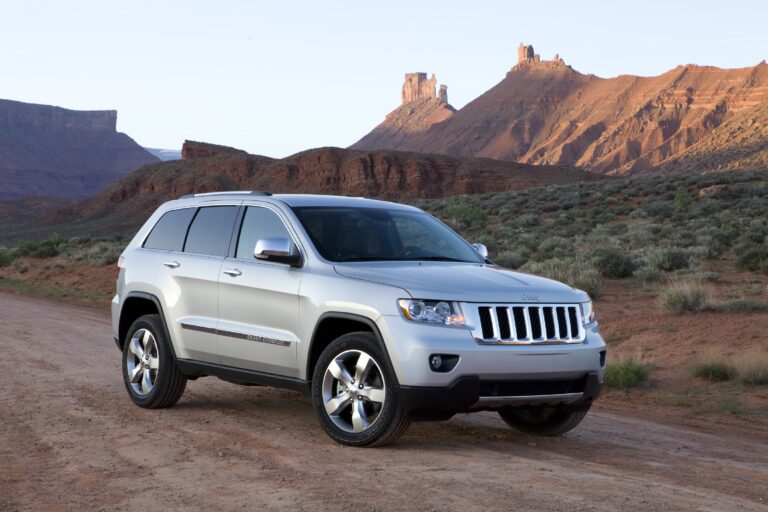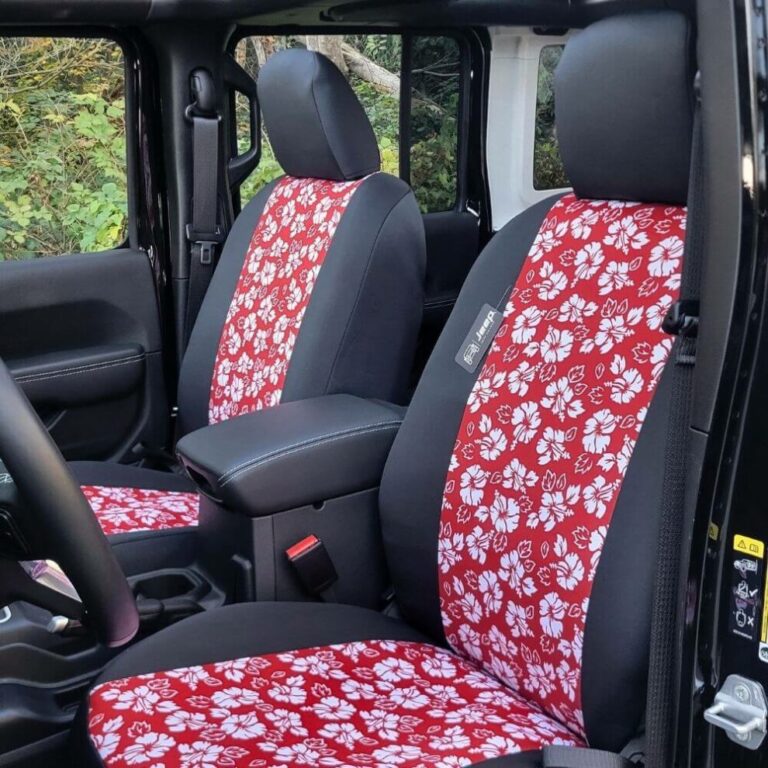2000 Jeep Grand Cherokee Engines For Sale: A Comprehensive Buyer’s Guide
2000 Jeep Grand Cherokee Engines For Sale: A Comprehensive Buyer’s Guide jeeps.truckstrend.com
The 2000 Jeep Grand Cherokee, part of the iconic WJ generation, holds a special place in the hearts of many automotive enthusiasts and off-road adventurers. Renowned for its robust build, comfortable interior, and impressive capability, it remains a popular choice for those seeking a dependable SUV. However, like any vehicle, the passage of time and accumulated mileage can take their toll, often leading to the need for a major mechanical overhaul – specifically, a replacement engine.
Finding the right engine for your 2000 Jeep Grand Cherokee can breathe new life into a cherished vehicle, saving you the significant expense of purchasing a new car while preserving the reliability and performance you’ve come to expect. This comprehensive guide will navigate the intricacies of sourcing, purchasing, and understanding the options available for 2000 Jeep Grand Cherokee engines for sale, ensuring you make an informed decision.
2000 Jeep Grand Cherokee Engines For Sale: A Comprehensive Buyer’s Guide
Understanding the 2000 Jeep Grand Cherokee Engine Options
Before embarking on your search, it’s crucial to identify the specific engine that powers your 2000 Grand Cherokee. During this model year, Jeep offered two primary engine choices, each with its own characteristics:
-
4.0L PowerTech I6 (Inline-Six): This legendary engine is widely praised for its simplicity, durability, and reliability. Often referred to as "bulletproof," the 4.0L I6 is a workhorse, known for its longevity if properly maintained. It produces approximately 190 horsepower and 225 lb-ft of torque, offering a good balance of power and efficiency for daily driving and light off-roading. It was standard on most Laredo and Limited trims.
-
4.7L PowerTech V8: Offered primarily in the higher-trim Limited and Overland models, the 4.7L V8 provides a significant boost in power, delivering around 235 horsepower and 295 lb-ft of torque. While offering superior acceleration and towing capacity, the 4.7L V8 is known to have a few more potential issues than its I6 counterpart, such as the infamous "piston slap" (a minor noise that doesn’t always indicate a problem) and sensitivity to oil maintenance.

Knowing which engine your vehicle has (or which one you desire for a swap, though complex) is the first and most critical step in your search. You can typically find this information on your vehicle’s original window sticker, owner’s manual, or by checking the VIN (Vehicle Identification Number) decoder online.
Why Buy a Replacement Engine? Benefits and Challenges
The decision to replace an engine is often driven by significant mechanical failure, such as a seized engine, catastrophic internal damage, or extremely high mileage leading to excessive oil consumption or loss of compression. Instead of sending your beloved Grand Cherokee to the scrapyard, a replacement engine offers compelling advantages:

Benefits:
- Cost-Effectiveness: Replacing an engine is typically far less expensive than buying a new or late-model used vehicle, especially given the rising costs of cars today.
- Extended Vehicle Life: A new or remanufactured engine can effectively reset your vehicle’s powertrain mileage, allowing you to enjoy your Grand Cherokee for many more years.
- Restored Performance: Say goodbye to sluggish acceleration, excessive smoke, or worrying noises. A fresh engine restores your Jeep’s original power, efficiency, and reliability.
- Maintained Value: A vehicle with a new or low-mileage replacement engine often holds greater resale value than one with a failing or high-mileage original engine.
- Familiarity: You already know and love your Grand Cherokee. Replacing the engine allows you to keep a vehicle you’re comfortable with and avoid the hassle of finding and adapting to a new one.

Challenges:
- Initial Cost: While cheaper than a new car, the cost of an engine itself, plus shipping and installation, is a significant investment.
- Installation Complexity: Engine swaps are not DIY projects for the faint of heart. They require specialized tools, extensive mechanical knowledge, and considerable time, making professional installation almost a necessity.
- Finding the Right Engine: Locating a reliable engine that perfectly matches your vehicle’s specifications and comes with a solid warranty can be challenging.
- Hidden Issues: Especially with used engines, there’s always a risk of unforeseen problems that may not be apparent until after installation.
Types of Replacement Engines Available
When searching for 2000 Jeep Grand Cherokee engines for sale, you’ll primarily encounter three categories:
-
Used Engines (Salvage/Junkyard):
- Pros: The most affordable option. Can be found relatively quickly from local salvage yards or online used parts networks.
- Cons: Unknown history, mileage, and maintenance. High risk of hidden wear, damage, or impending failure. Warranty is typically very limited (e.g., 30-90 days, parts only).
- Tips: If considering a used engine, prioritize sellers who can provide detailed information (donor vehicle VIN, mileage), offer a compression test report, and allow for a visual inspection. Always choose a reputable seller with a clear return policy.
-
Remanufactured/Rebuilt Engines:
- Pros: Professionally restored to original equipment manufacturer (OEM) specifications. All worn or faulty components (pistons, rings, bearings, seals, valves) are replaced with new or reconditioned parts. Thoroughly tested before sale. Often come with a substantial warranty (1-3 years, unlimited mileage, sometimes including labor).
- Cons: More expensive than used engines, but the added reliability and warranty often justify the cost.
- Tips: Look for certified remanufacturers with a strong reputation. Understand the full terms of the warranty, including what it covers and for how long. Ensure the engine meets or exceeds OEM standards.
-
New Crate Engines:
- Pros: Brand new, zero miles, full factory warranty. The highest level of reliability and longevity.
- Cons: Extremely expensive, and often difficult to find for a vehicle of the 2000 model year, as manufacturers typically cease production of older engine models.
- Tips: If available, this is the ideal choice for long-term peace of mind, but be prepared for a premium price.
Where to Find 2000 Jeep Grand Cherokee Engines For Sale
Your search for a replacement engine can take you to several places:
- Local Salvage Yards/Junkyards: A good starting point for used engines. You can often inspect the engine in person.
- Online Auto Parts Retailers: Websites like Car-Part.com (a vast network of salvage yards), LKQ Online, and eBay Motors are excellent resources. Be specific with your search parameters (year, make, model, engine size).
- Specialized Engine Suppliers: Companies that focus solely on remanufactured or used engines often have large inventories and better warranties. Examples include Fraser Engines, Jasper Engines & Transmissions (a well-known remanufacturer), and Powertrain Products.
- Dedicated Jeep Forums and Social Media Groups: While not a primary source, you might find leads from other enthusiasts selling parts, but exercise extreme caution with private sales.
Important Considerations Before Purchase
Before committing to an engine purchase, arm yourself with information and ask the right questions:
- Engine Compatibility: Double-check that the engine is indeed for a 2000 Jeep Grand Cherokee with the correct displacement (4.0L or 4.7L). Verify any engine codes or VIN matches if provided.
- Mileage (for Used Engines): Lower mileage is generally better, but verify the source.
- Warranty: This is paramount. Understand the duration, what components are covered (parts only vs. parts and labor), and the claims process. A good warranty provides peace of mind.
- Core Charge: Remanufactured engines typically require a "core charge," which is a deposit refunded when you return your old, rebuildable engine. Factor this into your initial cost.
- Shipping Costs: Engines are heavy! Shipping can add hundreds of dollars to the total cost, especially for long distances. Get a clear shipping quote upfront.
- Included Accessories: Ask what comes with the engine. Is it a "long block" (block, cylinder head, valvetrain) or does it include intake manifold, exhaust manifold, sensors, throttle body, alternator, power steering pump, etc.? More complete engines might cost more but save you money on additional parts.
- Return Policy: Understand the seller’s return policy in case the engine is not as described or has issues.
- Professional Diagnosis: Before buying an engine, have a trusted mechanic definitively diagnose your current engine’s problem to ensure a replacement is truly necessary and not just a minor repair.
Installation and Beyond
Once you’ve acquired your replacement engine, professional installation is highly recommended. An engine swap is a complex, labor-intensive process that requires specialized tools and expertise. Budget for not only the engine itself but also the labor costs (typically $800 – $2,000+ depending on region and complexity).
During installation, it’s wise to replace several ancillary components that are easily accessible with the engine out. These might include:
- New gaskets and seals (head gaskets, intake/exhaust manifold gaskets, oil pan gasket)
- Spark plugs and ignition coils
- Thermostat and coolant hoses
- Belts (serpentine belt)
- Fluids (engine oil, coolant, transmission fluid)
- Water pump (especially on 4.0L, often a good preventative measure)
- Oil filter and air filter
For new or remanufactured engines, follow the manufacturer’s break-in procedures carefully. This typically involves specific driving habits for the first few hundred miles to ensure proper seating of components and longevity.
Practical Advice and Actionable Insights
- Do Your Homework: Never rush into an engine purchase. Research sellers, compare prices, and read reviews.
- Get Everything in Writing: Ensure all terms, including warranty, shipping costs, and what’s included, are documented.
- Ask Questions: Don’t hesitate to ask sellers detailed questions about the engine’s history, condition, and testing procedures.
- Total Cost Perspective: Factor in the engine price, shipping, core charge, installation labor, and necessary ancillary parts when budgeting.
- Consider a Pre-Purchase Inspection: If buying a used engine locally, consider having a mechanic inspect it before purchase.
2000 Jeep Grand Cherokee Engine Price Table (Estimated)
| Engine Type | Engine Size (Liters) | Typical Price Range (USD) | What’s Typically Included | Estimated Warranty | Core Charge (Refundable) |
|---|---|---|---|---|---|
| Used Engine | 4.0L I6 | $700 – $1,500 | Long block, sometimes some accessories (as-is) | 30-90 days (parts only) | N/A |
| 4.7L V8 | $900 – $2,000 | Long block, sometimes some accessories (as-is) | 30-90 days (parts only) | N/A | |
| Remanufactured Engine | 4.0L I6 | $2,000 – $3,500 | Long block, new internal components, often new oil pump | 1-3 years / Unlimited Miles | Yes ($250 – $500) |
| 4.7L V8 | $2,500 – $4,000 | Long block, new internal components, often new oil pump | 1-3 years / Unlimited Miles | Yes ($250 – $500) | |
| New Crate Engine | 4.0L I6 | $3,500 – $5,000+ | Complete assembly, brand new | 3+ years / Unlimited Miles | N/A |
| 4.7L V8 | $4,000 – $6,000+ | Complete assembly, brand new | 3+ years / Unlimited Miles | N/A |
Note: Prices are estimates and can fluctuate significantly based on supplier, region, market demand, and the specific condition/mileage of used units. Installation costs (typically $800 – $2,000+) are separate and not included in these engine prices. "Long block" generally refers to the engine block with the crankshaft, pistons, connecting rods, and cylinder heads attached, but without external accessories like intake/exhaust manifolds, alternator, starter, etc.
Frequently Asked Questions (FAQ)
Q: How do I know which engine my 2000 Grand Cherokee has?
A: Check your owner’s manual, the vehicle’s original window sticker, or use an online VIN decoder. The 4.0L is an inline-six, and the 4.7L is a V8.
Q: What’s the difference between a long block and a short block?
A:
- Short Block: The engine block assembly, including the crankshaft, pistons, and connecting rods. It does not include the cylinder heads.
- Long Block: The short block assembly with the cylinder heads, valvetrain (valves, camshafts), and timing components installed. This is the most common type of replacement engine sold.
Q: Is it better to buy a used or remanufactured engine?
A: For peace of mind and long-term reliability, a remanufactured engine is generally the better choice due to its comprehensive restoration process and robust warranty. Used engines are cheaper but carry higher risk.
Q: What should I look for when inspecting a used engine?
A: Check for obvious cracks or damage to the block or heads, signs of excessive oil leaks, rust in coolant passages (indicating lack of maintenance), and verify the mileage if possible. A compression test is ideal if the engine can be spun.
Q: How much does it cost to install a replacement engine?
A: Installation costs typically range from $800 to $2,000+, depending on the complexity, your mechanic’s labor rate, and geographic location.
Q: Do I need to replace other parts when swapping an engine?
A: Yes, it’s highly recommended to replace worn-out ancillary components that are easily accessible with the engine out, such as gaskets, seals, spark plugs, belts, hoses, and possibly the water pump and thermostat, to prevent future issues.
Q: Can I upgrade my 4.0L to a 4.7L V8?
A: Yes, it’s technically possible, but it’s a significant undertaking. It requires not only the engine but also the transmission, engine computer (ECU), wiring harness, radiator, and potentially other components to ensure compatibility. This is a complex and costly swap best left to experienced customizers.
Conclusion
Replacing the engine in your 2000 Jeep Grand Cherokee can be a highly rewarding investment, extending the life of a vehicle known for its resilience and capability. While the process demands careful research and a significant financial commitment, opting for a quality replacement engine, especially a remanufactured one, provides a cost-effective alternative to purchasing a new vehicle. By understanding your options, asking the right questions, and budgeting for all associated costs, you can confidently find the perfect engine to keep your beloved WJ Grand Cherokee on the road for many more adventures to come.






